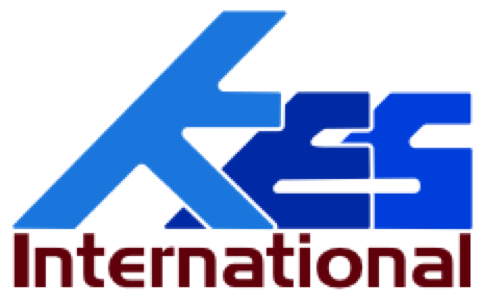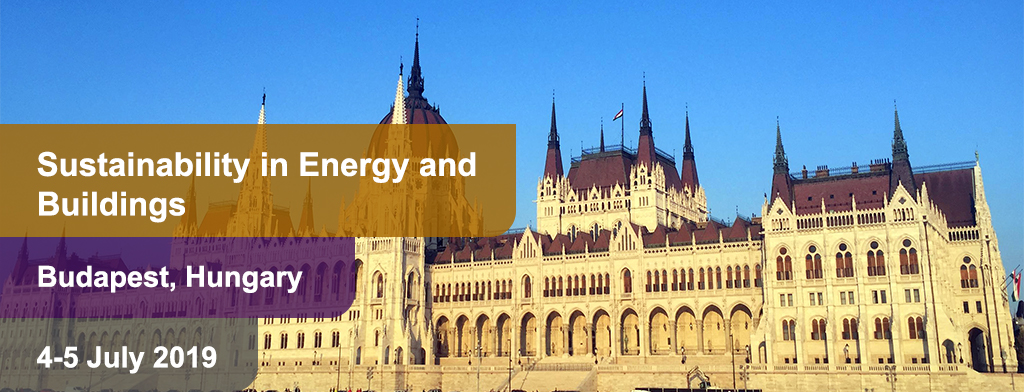General Track
Full track papers, short track papers and doctoral submissions within the scope of the conference may be submitted to one of the following General Track sessions. These papers will be reviewed by knowledgeable referees, and if accepted, allocated to sessions for presentation at the conference.
Authors may also submit to an Invited Session if invited to do so by the session chair, or their paper fits the scope of the session better than the General Track.
The General Track Sessions are as follows:-
Note: The content of the tracks is subject to review and change.
G01: Sustainable & Smart Buildings
The Sustainable & Smart Buildings track invites papers that considers the environmental, economic, and social and community and resilience challenges for designing, constructing, commissioning, operating and enhancing the performance of buildings and their controls. In addition, to their comfort, health and wellbeing of occupants and users of these buildings, their immediate micro environment for smart cities and smart rural conurbations.
Sustainable & Smart Buildings include new low carbon, zero carbon, zero carbon plus, and energy positive buildings, and also existing buildings (heritage or otherwise) that are retrofitted with improvements to increase their performance, occupant comfort, reduce energy usage and increase their acoustic and fire performance for their users.
There are numerous processes involved in creating Sustainable & Smart Buildings, including design, construction or retrofit, commissioning and finally operation. The application of building engineering, science and technology can be used to assess, monitor, optimise, reflect upon and test Sustainable & Smart Buildings, their Controls and the Building's immediate environment. In addition, to considerations for bioclimatic design.
In this track, papers are invited that address one aspect of more of the considerations discussed, and/or fall under the following themes:
- Sustainable & Smart buildings for comfort and health; building construction and envelope systems; HVAC systems; user behaviour, operational vs embodied energy. Analyses through either quantitative or qualitative techniques during the design, construction, commissioning, handover, operation or retrofit and refurbishment process in existing neighbourhoods in rural or urban (smart towns and cities) conurbations, cities or in new Smart Cities. Techniques can include: desktop (theoretical) case studies; physical testing of internal comfort and health conditions versus energy use and climate conditions; building users comfort and health; occupant and design team interviews.
- Building performance assessment: dynamic thermal modelling, dynamic hygrothermal modelling, thermal bridge analysis; thermography; air tightness testing; heat flux testing; energy profiling; monitoring energy use, thermal comfort, indoor air quality versus climatic conditions; moisture mapping; whole building smoke tests; co-heating; fire performance assessment and building safety measurements and surveys; acoustic measurements, including audits, surveys and tests.
- Design tools and methodologies: Building Information Modelling; education and training; development of assessment, monitoring and optimisation methods; comparison of methodologies and regulations in one country or between countries; modelling, optimisation and validation of building, neighbourhoods and cities.
- Post occupancy and in-use evaluation: building system performance; building integrated renewable energy performance; user interaction in buildings, neighbourhoods and cities; use and evaluation of user guides; evaluation of design team and occupant walk-throughs.
Chair:
John Littlewood, Cardiff Metropolitan University, Wales, UK
G02: Energy management in the Smart City
Cities currently account for about two-thirds of global primary energy demand and three quarters of total energy related carbon dioxide (CO2) emissions. The energy and carbon footprint is bound to increase with urbanization and the growing economic activity of urban citizens.
Mass urbanization is, therefore, one of the most urgent worldwide challenges of the 21st century. Cities have to face issues related to poor air quality, urban heat island effect, environmental quality, energy shortage, energy and grid management, etc. Moreover, urban services highly depend on energy availability and on the opportunity to reduce the related harmful emissions.
In particular, this session aims to address energy management in the built environment for smart cities. Research papers covering the following topics but not limited to are welcome:
- Urban Building Energy Modelling (UBEM)
- Urban Metabolism
- Building stock energy data mining and analytics
- Energy Management Systems (EMS) at district/urban scale
- Energy data visualization and city dashboards
- Energy storage in urban applications
- Demand-Response procedures in urban areas
- Energy data and privacy
- Outdoor air quality and comfort management
- Prosumers interconnected to smart energy grids
- Optimization of district heating and cooling systems
Chair:
Alfonso Capozzoli, Politecnico di Torino, Italy
G03: Renewable Energy Technologies
The Renewable Energy Technologies track focuses on recent developments in the field of sustainable energy to contribute to meeting environmental and economic requirements of industry and society.
Papers submitted under this track may be on the following topics
(although this is not an exclusive list):-
- Harvesting Renewable energy: Solar photovoltaic energy,
solar thermal energy systems, concentrating solar power, wind power;
wave, ocean, tidal and hydro power; biomass and bio-energy;
geothermal energy technologies; ground-source and air-source heat pumps;
fuel cells, materials for renewable energy technologies.
- Energy storage: Battery technologies, hydrogen production and storage,
hydro pump storage, compressed air storage, ultra-capacitors,
novel storage technologies.
- Integration of renewable energy: Grid integration of renewable energy,
integration of renewable energy sources with buildings and the built
environment, power conversion systems, designs for renewable energy
integration, application of heat pumps; grid reliability with renewable
energy, combined heat and power; renewable energy based district
heating and cooling.
.
- Ancillary Technologies for Sustainable Energy: Power electronics
for energy conversion and switching; voltage conversion, frequency
conversion, power factor correction.
.
- Energy policies - financial incentives, policies, regulations and
solutions for the transition to renewable energy.
Chair:
Prasad Kaparaju, Griffith University, Australia
G04: Smart Grids and Micro Grids
Future energy needs and environmental constraints require that the electrical generation and distribution system (often described as 'the grid') takes on a different form in the future to its current one. 'Smart Grids' involve the incorporation of electronic communication, digital control and artificial intelligence into the grid. 'Micro Grids' are self-contained sections of the main grid, containing generators and consumers, and able to 'island' or work independently when necessary. The future grid infrastructure will contain smart and micro grid elements.
Papers submitted under this track may be on the following topics
(although this is not an exclusive list):-
- Component Technologies: energy generation sources, energy storage;
communications system, power line communications, wireless and GPRS
systems; energy management; smart interconnection and control systems
through layered distributed artificial intelligence; SCADA.
- Interconnection with the Macro-Grid: standardisation requirements,
power quality, voltage and frequency matching, reactive power,
grid-tie inverters and other power electronics.
- Local / Internal Markets and Trading: internal markets,
prosumers vs consumers, peer-peer trading, distributed ledgers,
market trading platforms, blockchain, utility and regulatory reform
for micro-grids, regulatory models.
- Models and Design: grid topologies, mini, micro and nano grids;
software tools for micro-grid design and optimisation,
case studies and examples.
Chairs:
Robert J. Howlett, Bournemouth University, UK &
Co-chair TBN

